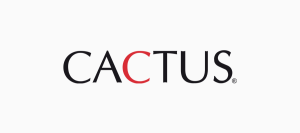UNSILO, the AI solutions company I cofounded, was acquired by Cactus Communications on January 28. From one day to another, we got 1000+ new colleagues from around the world, new systems to understand and integrate, product portfolios to merge, and new ideas to develop. For obvious reasons, we expected lots of facetime with new colleagues, and extensive travelling between Denmark and India to ease the integration.
On February 27, all plans changed. Denmark reported its first case of COVID-19. Things quickly escalated hereafter. A group of us from Denmark were bound for a fully packed week in Mumbai with lots of post-acquisition meetings and activities, including cultural events such as attending Holi, the annual festival of color, which I personally have wanted to experience for years.
All travel plans were wisely cancelled as the outbreak continued.
On Tuesday, March 10, we gathered the Cactus Labs Denmark team at our office in Aarhus, preparing everyone to work from home by the end of the week. Honestly, at that point in time, it still felt a bit drastic and unreal to enforce this. However, as we are part of an industry where “working from home” is close to the norm, we decided to go ahead with this initiative despite no authorities requiring this (yet). We thought this was our way of contributing to reducing the further spread of the outbreak in Denmark.
The day after, on March 11, the Danish Prime Minister went on national TV to announce a historic lockdown of the entire country. Daycare, schools, all public institutions were shut down. Two days later, all borders were closed, and a week later, gathering in groups of more than 10 people were banned – shutting down life as we know it – at least for a period.
Fortunately, like many other IT startups, working from home has been a key part of our culture for several years. We never had any formal guideline on how many days people could work from home. Like many other IT startups, we invested heavily in systems and infrastructure to ease online communication and collaboration: Slack, Jira, Trello, MS Teams—you name it.
Despite this, we never had been in a situation where everyone had to work from home for several weeks.
Given below are a few, simple practical initiatives we enforced during this period to ease the new situation of everyone working from home:
- Make sure you are comfortable at home, so bring your elevation table, your screens, your keyboard from the office, even your miniature Star Wars figures, or pictures of your kids.
- Be active with your online status updates, so when you log on say good morning like you probably would have done when you met at the office, let us know when you go for lunch or run an errand (#afk), and let us know once your day is done, or if you simply need a brake (and remember to take many brakes!).
- Continue regular meeting frequency and always enable your camera when you dial in for meetings to ease communication—even though you look like a wreck or your kids are running around in the background.
- Continue to share stories from your life even though your life may be less exciting during these weeks.
Despite the above initiatives, we have, of course, also faced challenges.
We learnt how absolutely crucial delegation is, and why it is so important to have clear and well-defined roles and responsibilities. People need to know exactly what they own as a product, project, or target, particularly when communication doesn’t flow like normal. We also learnt that we need to improve our internal documentation even further to ensure easier onboarding and knowledge sharing between people.
Bringing two companies together across different continents is hard, doubly so when you are unable to physically meet. However, thanks to a bunch of great colleagues at CACTUS, we have achieved far more than I expected looking back at February 27.
This global outbreak is no doubt devastating for so many people, businesses, and industries. Personally, I have both family and friends who have suffered hard. Forced to look at the positive side of things, I do believe, once on the other side, that many leaders and businesses can and should use this crisis to improve how they organize. Anything we learn, practice, teach, and do in these times will serve us just as well when we’re all back in the office. Hopefully soon.








